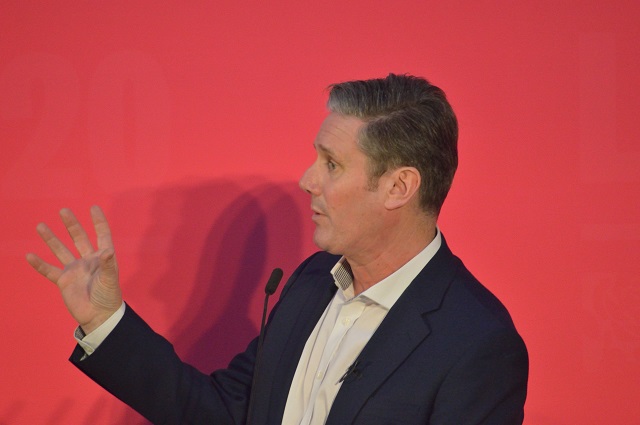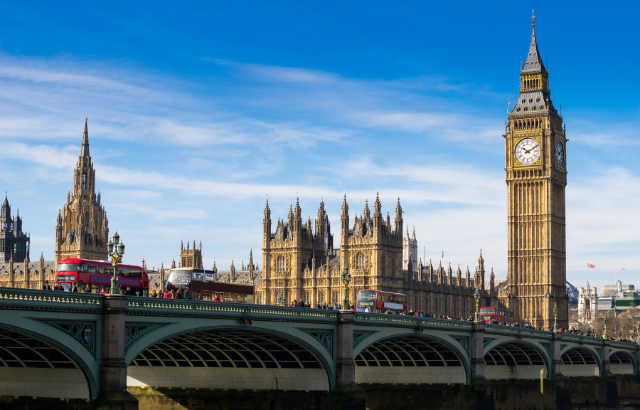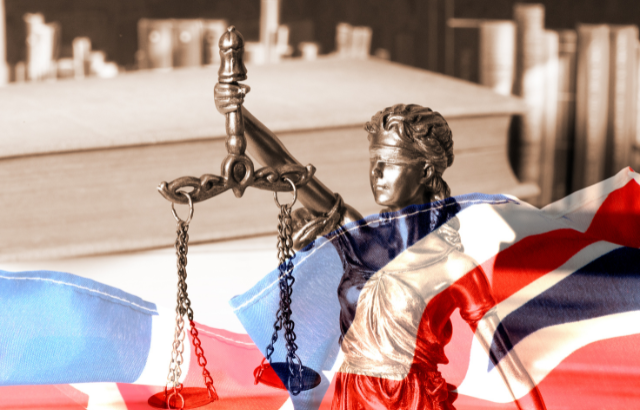Keir Starmer’s conference speech offered a clearer ideological position – even more ambition will now be needed
Karl Pike, Lecturer in British Politics/Public Policy in the School of Politics and International Relations at Queen Mary University of London has written for The Conversation on the speech that Kier Starmer gave at the Labour Conference 2022.

One thing was very clear from Keir Starmer’s conference speech in Liverpool: Conservative prime minister Liz Truss’s policy choices are helping the Labour leader define a clearer ideological position. A key dividing line, reiterated by Starmer throughout this speech, was the distributional impact of the abolition of the additional rate of tax (the 45p rate) – and Starmer’s commitment to reverse that decision.
Starmer’s speech was very much a product of the current moment. The events of the past week – Prime Minister Liz Truss and Chancellor Kwasi Kwarteng’s tax cuts and the market reaction that followed – could clearly affect the Conservatives’ reputation for economic management.
Labour’s poll lead was already looking stronger prior to the recent economic news. With this in mind, Starmer gave a confident performance, seeking to build a sense of momentum. Economic competence is seen as critical for Labour’s electoral success and Starmer clearly sees his chance now.
But Labour will need a comprehensive, and detailed alternative if voters are to believe the party’s economic policy can deliver higher growth, well-funded public services and a fairer tax system in the future. A quiet, or minimal-change economic offer isn’t remotely viable if Labour’s objectives are to be realised.
Labour’s policies in the lead up to the next general election – and if they win – will be influenced by whatever shape the economy is in. There is the picture today of a government borrowing to fund tax cuts, and that picture may change again as the Conservatives respond to how the “mini budget” was received. Big choices (whatever you think of them) are being made by the current government, and there is far less room for equivocation for Labour in these circumstances.
An emerging ideological clarity
Starmer has been criticised in the past for lacking ideological definition. At times during Boris Johnson’s premiership, he equivocated on big ideological decisions. Now, however, with Truss in office, something much clearer is emerging from Labour, with this conference speech driven by a critique of abolishing the 45p rate.
Starmer accused the Conservatives of supporting redistribution “from the poor to the rich” and of managing to find money to spend so long as it’s “for the top 1%”. An “unwritten contract” – a meritocratic contract, according to Starmer – has been torn up by the Conservatives.
There was a slightly laboured extension of the former Conservative chancellor, George Osborne’s “fixing the roof while the sun shines” analogy involving broken windows and blown-off doors. But Starmer was clearly confident in painting a picture of Conservative decline and Labour support for future growth.
Central to that vision was green growth, a theme of the conference. And the announcement – popular in the conference hall – that a Labour government would set up a publicly owned “Great British Energy” company brought further policy weight to that vision.
Starmer committed to the state playing a role when it helped working people. In a section about “what government can do”, he was clear the state can significantly boost green investment and delivery. It can invest in public services, with the NHS as a priority. He also mentioned reform, prevention, and early intervention – important, consistent themes for political leaders over decades, so seemingly easier said than done.
Labour has policies aplenty. And its green growth strategy is doing much work to bring its ideological objectives together: a bigger role for the state in clean energy, both in investment and ownership; rising to the challenges of the climate emergency; and helping people with the cost of living crisis through insulating homes and cutting bills.
But Starmer also made it clear that the economic circumstances a future Labour government could inherit may affect its agenda. This was “a Labour moment”, according to Starmer, citing 1945, 1964 and 1997, rare occasions in British politics that have paved the way for Labour governments. But he was at pains to emphasise the “damage” he believes the Conservatives have done to the economy and public services, arguing that not everything can be fixed immediately.
The big question after this speech is how the growing ideological divide between Labour and the Conservatives – and the economic consequences in the meantime – affects Starmer’s emerging governing narrative. There are going to be big judgements between now and the next election on tax and public spending. Bigger, bolder choices will need to be taken by Labour if it is to be in a position to meet more of its objectives and aspirations for Britain.
This article first appeared in The Conversation on September 27.
Related items

10 December 2024

9 December 2024

6 December 2024